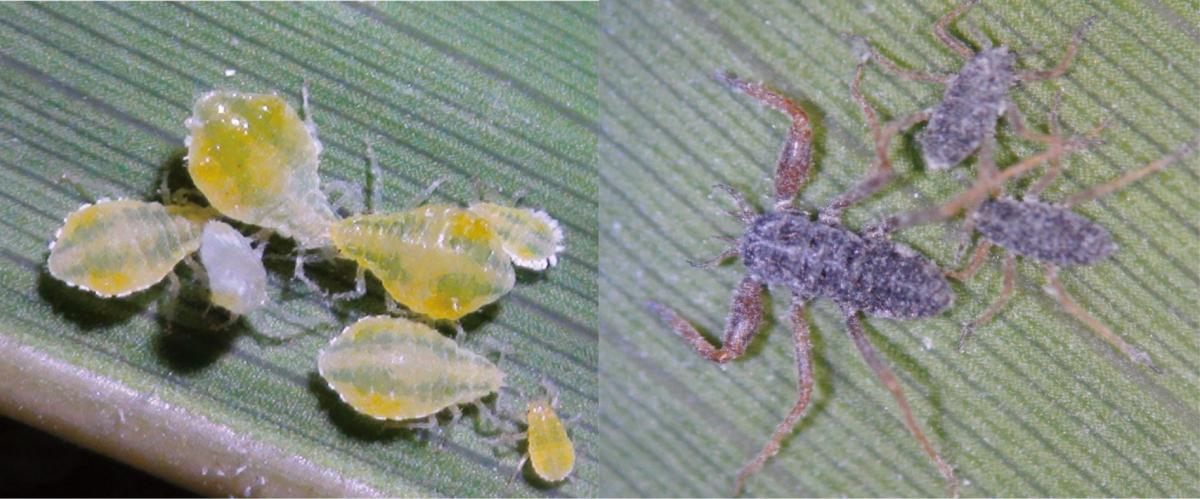
Submitted by Debbie Birkett on Tue, 09/05/2023 - 12:22
Living in some kind of a nest is usually thought to be a necessary condition for the evolution of complex sociality - in everything from sponge-dwelling snapping shrimps to burrowing naked mole-rats. Nests provide a resource that can readily be defended and helps ensure that you are surrounded by relatives.
However, in a small group of aphid species, sterile soldier castes have evolved in colonies living entirely without a nest on the leaves and stems of bamboo.
Aphids need not just be squishy balloons of haemolymph: they can be armed with daggers and legs that crush” William Foster
A recent study, published in Behavioural Ecology and Sociobiology* explores what makes these eusocial aphid societies unique by examining the genetic relatedness of individuals within colonies of two different aphid species - one eusocial and one non-eusocial - living on the leaves and stems of bamboo.
Keigo Uematsu, from Keio University in Japan, studied the aphids in the field in Taiwan, and analysed aphid samples in the Department with Bill Amos and William Foster.
In one species, which often forms colonies of thousands of individuals, there is a special caste of sterile first instar soldiers, which are armed with thickened scorpion-like forelegs and sharp horns on their heads. They roam over the aphid colonies, looking to kill predators such as hoverfly larvae. Colony defence is their only role: they do not feed and do not moult into a second instar.
The other, non-eusocial, species, tends to live in smaller colonies and does not have a sterile social caste.
Clonal mixing occurred in both species, but the eusocial colonies are more genetically uniform, functioning as a large colony. An individual of the eusocial species moving over a colony is therefore very likely to encounter a clone-mate, which will therefore be genetically worth defending. In the other species, a potential defender aphid would be much more likely to find itself defending an individual from an alien clone.
These results suggest that the ecological conditions that promote genetically homogenised, large, and long-lived colonies are important for the evolution of eusociality in these aphids.
A further novel aspect of this study is that it probably provides a record-breaking delay – 43 years - between the start of a PhD and the first joint-publication by a supervisor (WAF) and PhD student (WA).
* https://link.springer.com/article/10.1007/s00265-023-03315-9
Images: (Left) Part of a colony of the non-eusocial aphid species.
(Right) A first-instar soldier and two regular first-instars of the eusocial aphid species.
